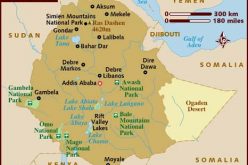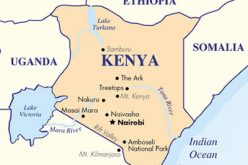Plastic bags that symbolized prosperity are clogging the capital, Accra, exacerbating deadly floods.
Wall Street Journal – ACCRA, Ghana—Plastic shopping bags choke the waterways in this capital, once the seat of Africa’s fastest-growing economy.
It is an illustration of how this country of 26 million shifted from a success story to one struggling to manage its own prosperity.
Drains clogged by plastic bags overflowed this month, causing a massive flood in which at least 150 people died, 90 of them burned alive when the runoff carried fuel into a fire. The water caused hundreds of millions of dollars of damage.
Just two decades ago, countries like Ghana were worried about how to jump-start growth. In the early 2000s the nation emerged as one of the world’s fastest-growing economies—Africa’s fastest in 2011—with an abundance of plastic bags serving as a tangible symbol of a rising consumer class.
But the country’s consumption-driven growth has burdened Ghana’s meager infrastructure. Families brought home appliances such as refrigerators faster than their government could build power plants. They bought cars faster than the state built roads. Now, the country suffers dayslong blackouts and hourslong traffic jams, two reasons why growth this year is projected at just 3.5%.
The country also faces a profusion of tossed-out plastic bags. Along with other refuse, they caused the main blockage during the flood, said Ghanaian President John Dramani Mahama. Aside from bags, the junk that caused the catastrophe represented a cross-section of the consumer goods Ghanaians had spent the past decade buying in record volume.
“Plastics are choking the drains.…It’s mind-boggling, the plastic bottles, the pieces of timber, and firewood, and old mattresses, and old furniture, and pieces of old cars” that end up in Ghana’s sewer system, he told journalists this month.
Now, Mr. Mahama has become the latest African leader to weigh a crackdown on plastic bags.
Accra was once a sleepy beachside town of moldering, colonial homes. Then, as with Africa’s biggest cities, it spent the past decade on a shopping spree. It erupted with cineplexes, cafes, convenience stores, car dealerships and supermarkets in almost every major neighborhood, several of them owned by Wal-Mart Stores Inc. Local shopkeepers, meanwhile, built bodegas out of shipping containers.
Ghana’s economy averaged annual 8% growth from 2002 to 2012. Retail spending doubled between 2006 and 2011, according to research firm Euromonitor.
But that generated a lot of trash. In recent years, Rwanda, Tanzania and Uganda all banned plastic bags—a more-aggressive measure than some of the moves by more ecologically minded governments in Europe. South Africa and Botswana heavily tax bags. Mr. Mahama aims to do one or the other, putting weight behind antibag proposals that have fluttered around Accra’s legislature for years.
“It’s a tragedy that we must not allow to happen again,” Mr. Mahama said.
The government here set up dumpsters around town in recent years, but they fill up faster than they can be collected, and the city has sprawled beyond the system’s reach, Mr. Mahama said. Private waste-collection companies haven’t been able to dispatch garbage trucks into every cranny of the sprawling city of four million.
Many households just pass their trash off to young men, who later toss it into a sewer. From there, garbage washes down into a river, and into a neighborhood so poor, polluted and filthy that locals call it Sodom and Gomorrah. Riverbanks there are coated in plastic bags.
“It’s the water that brings them here,” said Bashiru Seydu, a customer at a barber shop, kicking a clump of plastic bags under his feet. Nearby, a boy marched atop a mound of garbage and tied a large plastic bag around his neck, like a cape.
Slow-moving islands of trash floated by. They collided with a floodgate that is meant to release excess water out to sea. Instead, the gate is clogged with thousands of water bottles, thousands more Styrofoam to-go boxes and, one recent afternoon, a dead body, probably killed by the flood.
“It makes me very angry,” said Frank Appiah, the dredging operator tasked with scooping trash from the gate. He, a team of four men, and a giant construction crane had cleared the gate three days ago, but the trash came back. Most of all, the gate is jammed with plastic bags, he said. They form the bottom layer, six feet deep in some places, that blocks the gate. “A whole lot of plastic bags,” he said.
Plastic-bag makers feel they are being scapegoated for the city’s inability to pick up trash. Ashok Mohinani already pays a 2% levy on plastic imports, a charge meant to help the city collect the waste they generate.
“It’s something that’s at the bottom of everybody’s priorities, but when there’s a flood, they look at you, the manufacturer,” said Mr. Mohinani, executive director of Mohinani Group, a plastics manufacturer. “But you supply what the consumer wants, right?”
Mr. Mohinani said he is open to producing paper bags, or biodegradable ones, or thicker bags that are easier to remove from drains. But consumers would have to foot the bill for bags that are more environmentally friendly. And the government would have to enforce new rules—a tough task for a civil service that has struggled with basic litter regulations.
“There’s no 100% solution,” he said.
Preisdent Mahama isn’t only looking to clamp down on plastic. He is also looking to set up silt traps in Ghana’s rivers, dredge sewers, relocate neighborhoods occupying floodplains and replace storm drains that have been stolen by residents who sell the iron bars as scrap metal.
In 18 months, he will face re-election: “It’s mind-boggling, to see the extent of what needs to be done,” he said.










